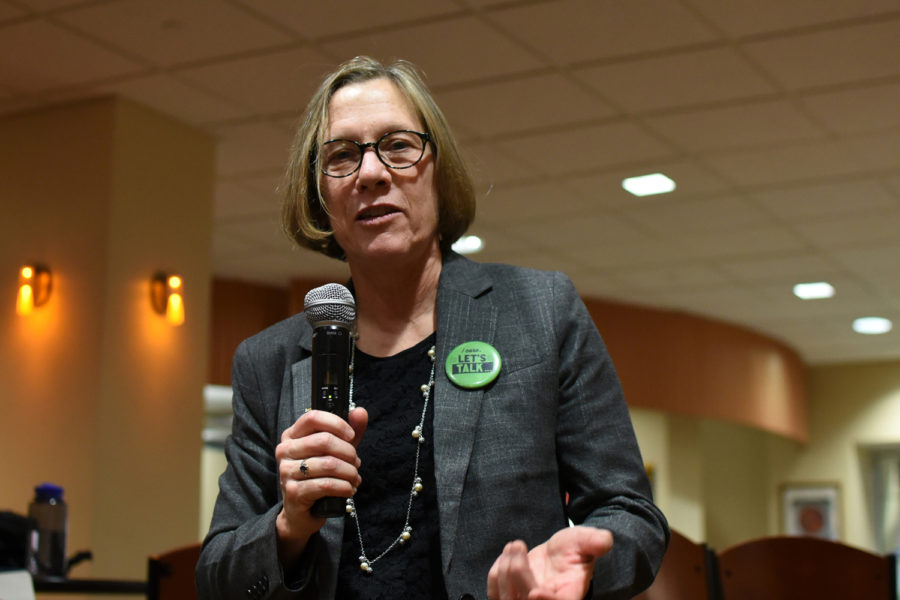Faculty not required to be in person, but must provide ‘classroom experience’
Knox Coulter | Senior Staff Photographer
Provost Ann Cudd speaks at a Student Government Board meeting on Oct. 24, 2018.
June 26, 2020
Provost Ann Cudd said in a Friday afternoon email to faculty that they are not required to be physically present in the classroom during the fall semester, as part of the University’s new Flex@Pitt teaching model. The email arrives in the wake of many faculty members saying they have not received enough information about plans for the fall semester.
The Flex@Pitt program is said to allow students to experience classes “in person, remotely, synchronously or asynchronously,” in the midst of the ongoing COVID-19 pandemic. Pitt officials said last week that students would not be required to attend class in person for the fall.
But Cudd added that a classroom experience must be made available for students, and faculty are encouraged to physically come to the classroom where possible.
Cudd said in situations where instructors cannot come to campus, students can still be in classrooms to connect with their peers, with the instructor visible on screen to engage with students, field questions or conduct discussions. She said graduate or undergraduate teaching assistants, faculty colleagues or staff members may be utilized in their stead to facilitate classroom interaction.
Cudd added that as part of Flex@Pitt, the University will ensure that all faculty members have access to high-quality technology, such as laptops. Pitt said on Wednesday that it will spend the second half of its federal CARES Act funding, around $10.6 million, on fall restart costs, including Flex@Pitt.
“Our investment in technology will allow us to support our faculty and students, enroll a full class of students and transform the teaching environment well beyond the pandemic,” Cudd said.
Some classes, such as labs, may require an authorized person to be present to handle equipment and ensure safety. In these cases, Cudd said, the person in charge may not necessarily be the faculty member of record.
Cudd also provided an update about classroom usage in the email.
Pitt completed an audit of all classroom spaces two weeks ago and whether they met social distancing requirements. She said courses with very large enrollments may need to be fully remote, but most lectures and recitations with enrollments below 60 students can take place in-person. Courses with an enrollment between 60 and the undefined “very large” cutoff number may need to operate in a “rotated cohort mode,” Cudd said. This would mean only certain students attend classes on select days.
Cudd said she hoped to make final decisions about classroom assignments within the next two weeks.








